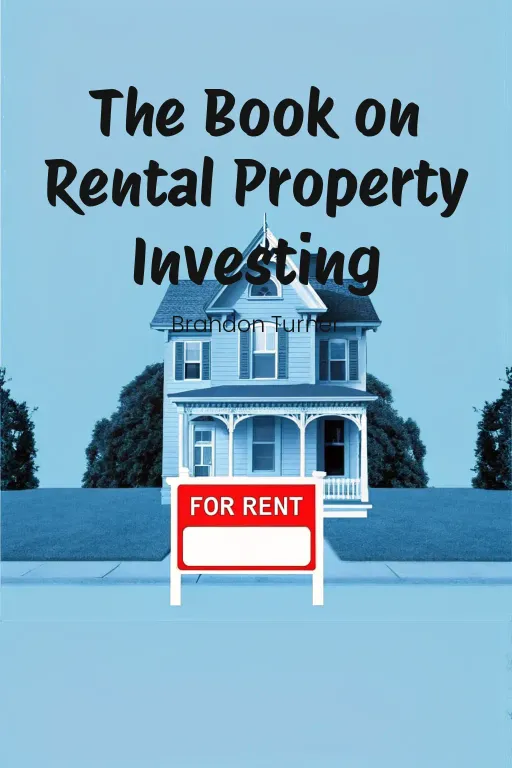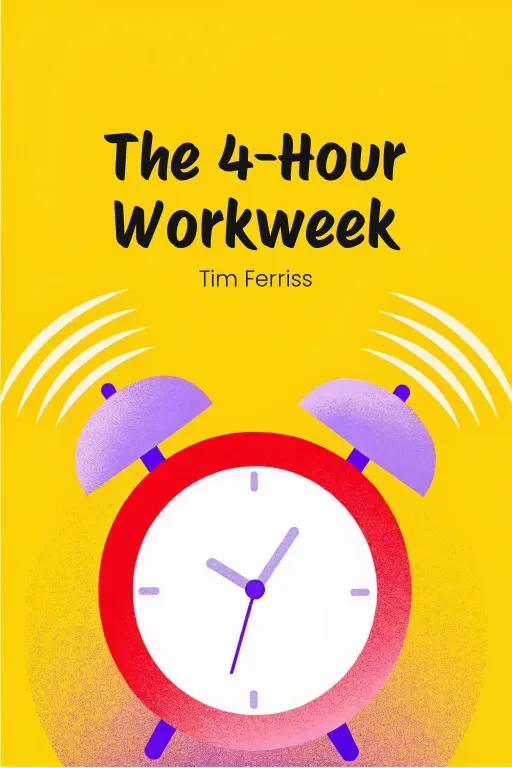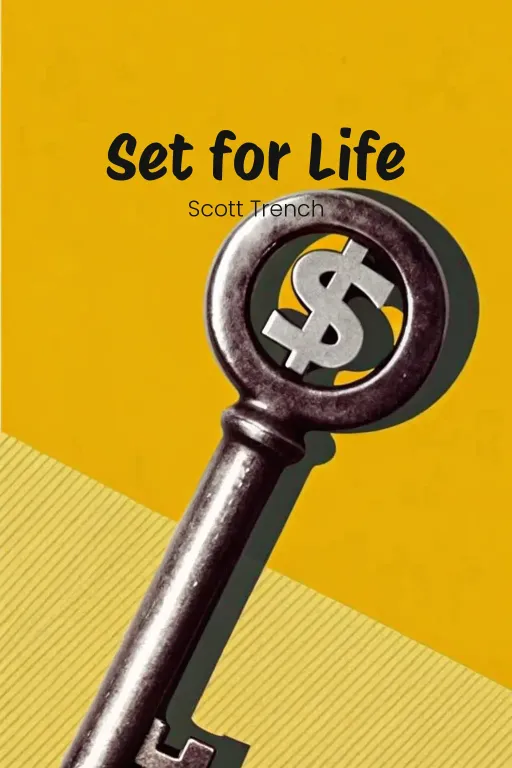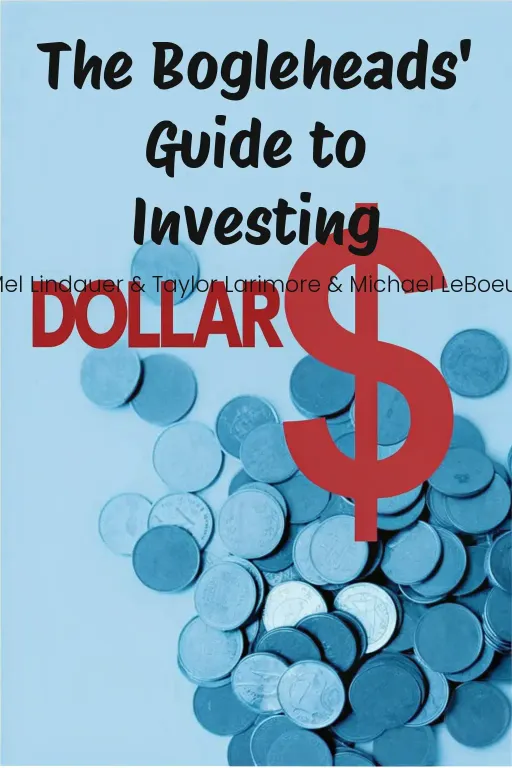
Rentals: Goals, Mindset, & Money Moves
Podcast by Let's Talk Money with Sophia and Daniel
How to Create Wealth and Passive Income Through Smart Buy & Hold Real Estate Investing
Rentals: Goals, Mindset, & Money Moves
Part 1
Daniel: Hey everyone, welcome back! Today we're diving into rental property investing, and we're using Brandon Turner’s "The Book on Rental Property Investing" as our guide. It’s pretty comprehensive. Sophia: Uh oh, Daniel, does this mean we’re about to be promised overnight riches from watching YouTube tutorials about flipping houses? I'm ready with my grain of salt. Daniel: Not quite, Sophia! Turner’s not about quick fixes, but it is a strategic roadmap. The book is about building genuine financial independence through smart, sustainable real estate investments. Think long-term, not get-rich-quick. Sophia: So, no chance of owning a skyscraper right away? I’ll have to put my dreams on hold? Daniel: Unless you have some serious cash lying around! But seriously, Turner argues that anyone can do this with the right knowledge, the right prep, and the right mental attitude. He breaks it all down – understanding different markets, choosing the right properties, managing those rentals, and gradually building wealth over time. Sophia: Sounds straightforward enough. But, there are always pitfalls, right? Daniel: Of course! And that's why we’re focusing on three key takeaways from the book today. First, we’re looking at setting clear goals and cultivating the right mindset. Sophia: So, step one: dream big, but keep it real? No floating off into a fantasy world. Daniel: Exactly! Secondly, we’ll drill down into property selection – how to identify and evaluate the right investments, the ones that make sense. Sophia: This is where I need the most help. Let's avoid those money pits disguised as “charming fixer-uppers,” shall we? Daniel: Absolutely. And finally, we’ll explore strategies for financing, like the BRRRR method, and the long-term principles for turning properties into serious wealth builders. Sophia: Okay, Daniel, lead the way. Let's see if I can go from renter to... well, maybe not a tycoon, but at least a somewhat successful property owner.
Defining Goals and Adopting the Right Mindset
Part 2
Daniel: Alright, Sophia, let's dive into our first building block: defining goals and adopting the right mindset. This is really where investors lay the groundwork for everything. It's not just about having grand visions; it's about translating those visions into concrete, actionable steps. Sophia: Okay, so instead of just vaguely saying, “I want to own, like, a bunch of properties,” we need something more specific, right? Like, “I want to generate $2,000 a month in passive income within three years.” Daniel: Precisely! Goals need to be specific, measurable, and achievable, or you know, realistic. Turner emphasizes clarity above all else. He shares this example of an investor aiming for $5,000 in passive income in five years. That clear target then dictates every decision: which markets to target, what types of properties to buy, and even what financing strategies to use. Sophia: Right, because otherwise, you're just kind of wandering aimlessly, without a clear plan. But how many people actually take the time to write this stuff down? It's easier said than done, right? Daniel: It is! Most people skip this step, or they get bogged down in overthinking it. Turner calls this "analysis paralysis," which can really cripple investors. For example, imagine a novice investor who spends months analyzing market trends and crunching numbers, but they’re too afraid to actually make that first purchase. Meanwhile, another investor with clear objectives takes the plunge, learns from experience, and builds momentum. Sophia: So, the perfectionist is stuck in neutral, and the risk-taker, well, they are actually driving the car, bumps and all. Got it. But doesn't that lead straight into the whole mindset piece? It takes a lot of confidence to make such a big decision. Daniel: Absolutely. Mindset is just as crucial as goal-setting, wouldn't you agree? Turner encourages investors to move away from fear and step into action. It's about embracing the identity – saying, "I'm not just “thinking” about investing; I “am” an investor." That shift can completely change your approach. Sophia: So, basically, flipping that inner monologue from "What if I fail?" to "What can I learn, even if things don't go perfectly?" But how do you actually fight that initial fear? It's natural to think of all the things that could go wrong... Daniel: Absolutely, but it's about reframing those fears. Turner tells a story about someone who hesitated for months, waiting for the perfect deal. Eventually, they realized that "perfect" doesn't exist, and they went ahead of an imperfect one. Sure, there were bumps along the road--repairs, tenant issues, unexpected costs--but they gained invaluable experience. That leap gave them the confidence to tackle future deals. Sophia: So, it's like learning to cook, right? You burn a few dishes before you figure it out. Speaking of unexpected issues, isn't that where having cash reserves comes into play? One broken water heater, and someone’s enthusiasm could vanish pretty quickly. Daniel: Absolutely. Cash reserves are non-negotiable. Turner suggests having at least six months’ worth of expenses saved per property. So, if your monthly costs for a property are, say, $800, you should have $4,800 tucked away. Sophia: And that keeps you from calling your parents for a loan when the roof caves in, right? Daniel: Exactly. He shares the example of a first-time property owner who skipped saving those reserves. Two months in, they faced a $3,000 plumbing disaster and had to borrow money. This strained their finances and delayed their next investment. On the flip side, having a safety net means you can handle those surprises and maintain momentum. Sophia: Okay, so define clear goals, cultivate an action-oriented mindset even if you’re imperfect, and have a financial cushion for those "uh-oh" moments. If you skip even one of those, you’re basically setting yourself up for stress instead of success. Daniel: That's right! These are the psychological and strategic roots from which a lasting investment strategy grows. Without them, you risk missing opportunities or crumbling under pressure when things get tough. Sophia: Alright, you’ve convinced me. So what’s next? Are we diving into specific strategies, or are we still at mindset bootcamp?
Strategies for Finding and Evaluating Properties
Part 3
Daniel: Okay, so we’ve got our goals and mindset sorted. Now for the nitty-gritty: finding and evaluating rental properties. This is where things get real—making the theory work in practice. Sophia: Yes! Finally, the juicy stuff. How do we find properties that actually make us money, instead of just bleeding us dry? Spill the beans, Daniel. Daniel: It starts with deep market research. Turner really emphasizes understanding what's happening locally. Things like population growth, job opportunities, school districts, crime rates, even what amenities are nearby. These factors “really” drive property values and how much you can charge for rent. Think about it: families want to be near good schools and safe neighborhoods, and they need bigger homes, right? Sophia: Makes total sense. The ideal, rent-paying tenant wants good schools and a Starbucks nearby. But the trick is, how do you spot those up-and-coming neighborhoods? It feels like trying to find the next Silicon Valley in a sea of small towns. Daniel: It's not easy, I agree, but there are ways to get an edge. Turner suggests using the Multiple Listing Service (MLS) to track prices and see what the competition’s doing in different areas. And then there's a less conventional method: "driving for dollars." Sophia: "Driving for dollars"? Sounds like a daytime game show. What, you just drive around until properties start throwing money at you? Daniel: Not quite. You’re physically scouting for properties that look distressed. Think peeling paint, overgrown lawns, boarded-up windows. Those are often clues that the owners might be motivated to sell, maybe because they’re struggling financially or can’t keep up with maintenance. Then you note down the addresses, do some research, and follow up through direct mail. Sophia: So, detective work, but instead of solving crimes, you’re hunting for underpriced houses. I get it. And the direct mail – are we talking about those cheesy postcards that say "We buy houses for cash!" in big, bold letters? Daniel: Exactly! It sounds old-school, but it can be surprisingly effective. Targeting absentee landlords or people who might be in financial trouble can lead to deals before they even hit the market. People might ignore the first letter, but persistence often pays off. Turner shares a story about an investor who found a “really” overgrown, abandoned-looking property. They tracked down the owner, sent a bunch of letters, and eventually got it for way below market value. That kind of persistence can “really” uncover hidden gems. Sophia: Okay, I'm intrigued. But how do you make sure this diamond in the rough is actually worth the effort? Daniel: That’s where evaluation criteria come in. Turner says we need to filter properties based on who pays for utilities, how appealing it is to renters, and if there's room to add value. For example, you “really” want properties where the tenants pay their own utilities; it lowers your expenses and encourages people to conserve energy. Sophia: Okay, so we're avoiding becoming "electric bill police." What else makes the "must-have" list? Daniel: Definitely properties with at least three bedrooms. Families tend to look for those, which means less tenant turnover. And always look for ways to improve the property. Even small changes, like updating a kitchen or converting unused space, can make a huge difference in how much rent you can charge and what the property is worth. Sophia: Give me a specific example. How does this play out in real life? Daniel: Okay, so you buy a slightly dated two-bedroom house in a good location. By finishing the basement to add a third bedroom and doing some basic kitchen upgrades—new appliances, updated cabinets—you turn it into a high-demand rental property for families or even people who want to share the space, right? That boosts the rent you can get and the overall ROI. Sophia: Turning a so-so property into a money-maker just by adding a wall and some new countertops? Sneaky, I like it. But what's the catch? This all sounds great on paper, but how do you make sure your spreadsheet dreams actually become reality? Daniel: That’s where financial metrics like cash flow and ROI come in. For example, let’s say a property brings in $1,200 a month in rent, but your expenses are $902. That leaves you with a positive cash flow of $298 each month, which is over $3,500 a year. Sophia: Yeah, numbers are great, but Turner must have some shortcuts for, you know, people who don’t love crunching numbers all day long. Daniel: Definitely. Turner talks about rules of thumb like the 50% Rule and the 2% Rule. The 50% Rule says that about half of your rental income will go towards operating expenses like taxes, insurance, and maintenance. So, if you’re bringing in $1,200 a month, expect to spend around $600 on those costs. The 2% Rule, which is harder to achieve these days, aims for properties where the monthly rent is equal to 2% of the purchase price. Sophia: So, if it doesn't meet the 2% Rule, stay away, or you’ll end up stuck with a dud instead of a cash cow rental? Daniel: Exactly. These aren’t strict rules, though – every market's different, so you have to adjust. And don't forget about having cash reserves, which we talked about. Having enough for six months can save you when something goes wrong or if you have a vacancy. Sophia: Okay, Daniel, let me see if I got this right. I snoop around neighborhoods for distressed properties, do my research, and then use the magic calculator to see if they're worth it. Sounds easy enough, right? Just remember to save up for those "oops" moments, because one major repair can wipe out your ROI, just like that. Daniel: That's pretty much it. The key is finding that balance between doing your homework and actually taking action. Analyze too much; you'll miss opportunities. Jump in without thinking, and you might make some costly mistakes. It's all about being informed and proactive.
Financing and Long-Term Wealth Building
Part 4
Daniel: So, once you’ve found and checked out some promising properties, then comes the real challenge: getting the money and actually buying them. This is where things get serious, Sophia, because succeeding in rental property isn’t just about finding a good deal, it's about how you pay for it and how you grow wealth. Sophia: Right, where the bank either backs your play or sends you back to the drawing board. Are we just talking mortgages here, or does Turner have some secret tricks to skip the red tape? Daniel: A bit of both, actually. Turner spends a good chunk of time on different ways to finance, from standard loans to what he calls "creative financing," like getting the seller to finance, borrowing from individuals, or even forming partnerships. The main point? Smart investors use their money wisely to grow their holdings without getting in over their heads. Sophia: Makes sense. But let’s start with the basics – standard loans. That’s what most people use, right? Daniel: Exactly. Standard loans are reliable, with steady interest rates and predictable payments. But there are hurdles. You need a good credit score, steady income, and a big down payment – maybe 20% to 30% of the property's price. That can be tough for some, but if you qualify, it's a solid way to go. Sophia: So, if standard loans are like a dependable sedan, what's "creative" financing? Is that like driving a Formula 1 car, exciting but risky? Daniel: Not quite Formula 1, but definitely more flexible! Creative financing means thinking outside the box. For example, there's seller financing, where the seller acts as the bank. This can work well for properties that don’t qualify for regular loans, like fixer-uppers, or if you don’t have all the cash upfront. Sophia: So, instead of dealing with the bank, you negotiate with the seller. Interesting. But what does the seller get out of it? Daniel: Flexibility, and potentially a higher price. There's a story in the book about an investor who wanted a small apartment building but didn't have the down payment for a traditional loan. They made a deal where the seller financed the whole thing at a reasonable interest rate, but the buyer agreed to pay a bit more for the property. It was a win-win - the buyer got the property, and the seller got steady income from the payments. Sophia: Okay, I get it. What about private lending? Is that just borrowing from the rich uncle everyone wishes they had? Daniel: Sort of! Private lending means borrowing from people instead of banks. It's good for deals that need to close fast – like in competitive markets. These loans usually have fewer requirements than traditional loans, but the interest rates may be higher. It's less about your credit score and more about who you know and trust. Sophia: So, I don’t need perfect credit for private loans, but I better work on my networking skills. What’s next? Partnerships? Daniel: Exactly. Partnerships can be great, especially when one person has money and the other has expertise, like managing properties or doing construction. Turner talks about how these partnerships can benefit everyone if you set clear expectations and roles from the start. Sophia: Let me guess – partnerships are great until someone disappears or things turn ugly. Daniel: That's why contracts are key. They spell out everything - how you split profits, who's responsible for what, and how to end the partnership. And about using what you have, Turner also suggests using home equity loans or lines of credit. If you own a home, you can borrow against it for down payments or improvements. Sophia: Okay, so it's not just starting from zero – it's about being resourceful with what you already have. I get that. But what about this BRRRR method I’ve been hearing about? It sounds like investing on steroids. Daniel: Not steroids, more like a smart growth strategy. BRRRR stands for Buy, Rehab, Rent, Refinance, Repeat. You buy a property cheap, fix it up to increase its value, rent it out for income, and then refinance to take out the equity. You use that equity to buy the next property, and so on. Sophia: Sounds brilliant, but also like it could fall apart quickly. Give me an example of it working in real life. Daniel: Sure. Imagine an investor buys a house in a rough neighborhood for $75,000. They spend $25,000 on renovations – new floors, paint, and a modern kitchen. After the work, the house is worth $150,000. They rent it out, make money each month, and then refinance for 75% of the new value - $112,500. That covers the original purchase and renovation costs, leaving money for the next investment. Sophia: Okay, so they're not just buying one house – they're creating a property machine. But what happens when things go wrong? Like, the market drops or tenants leave? Daniel: That’s where Turner’s long-term strategies come in. He stresses building a safety net by maximizing cash flow. This includes things like adjusting rents to market rates and cutting costs smartly. For example, upgrading to energy-efficient appliances or negotiating maintenance contracts to save money. Sophia: Yeah, small savings can “really” add up. I can’t believe I’m saying this, but rent increases sound… reasonable when you put it that way. Anything else? Daniel: Definitely. He talks about contesting property tax assessments to save a lot of money. In one story, an investor saw their property taxes skyrocket even though property values nearby were falling. They challenged the assessment with data on comparable sales, and they saved thousands of dollars over several years. Sophia: I wouldn't even think of that – fighting city hall. But it shows how being persistent and a bit clever can pay off. Daniel: Absolutely. And that persistence also means planning your exit, whether it's keeping properties for passive income, selling for profit, or using a 1031 exchange to defer taxes while reinvesting in new properties. It all depends on your goals. Sophia: So, in football terms, you’re either running the ball for short gains, passing for a touchdown, or making a trade to keep moving forward. Daniel: Exactly. It goes back to having clear goals and strategies. Financing isn't just about borrowing money – it’s about using it as a tool to grow and protect your portfolio. Sophia: Alright, I’ll admit – this is a lot more complex than I thought. From creative financing to cash flow tricks and exit strategies, it’s clear that real estate isn’t just a simple game. It “really” is chess, not checkers. Daniel: And the best part? Anyone willing to learn the rules and play strategically can build a solid portfolio. Turner’s book makes that very clear.
Conclusion
Part 5
Daniel: Okay, so to recap, we've gone through the three main pillars of rental property investing based on Brandon Turner's book. First off, it’s about figuring out your financial goals and getting your head in the right space. It's about ditching the fear and actually doing something, but with a plan and some grit, you know? Sophia: Right, then we dug into how to actually find those properties, right? Researching markets, spotting those golden opportunities, and crunching the numbers to make sure they actually make sense for your goals. Daniel: Exactly, and finally, we talked about financing and planning for long-term wealth, whether that's using regular loans, getting creative with partnerships or seller financing, or using something like the BRRRR strategy to grow faster. It's about being smart, being able to adapt, and, yeah, planning for the unexpected, definitely. Sophia: Yeah, and if there’s one thing I hope our listeners take away from this, it’s that real estate investing is not about getting lucky or finding some magic shortcut. It’s all about learning the ropes, taking smart risks, and building up momentum over time. Daniel: Totally. No matter if you're just starting out or trying to grow your portfolio, you “really” need to learn as much as you can, make confident moves, and stay flexible. So grab Turner’s book if you haven't already, start writing down what you want to achieve, and, you know, just take that first step towards being financially free. Sophia: Oh, and one more thing – always, always have a backup fund. Because nothing kills a landlord’s vibe faster than a leaky roof. Daniel: Sounds like you are speaking from experience. Great advice, Sophia. Until the next one, happy investing, everyone!









